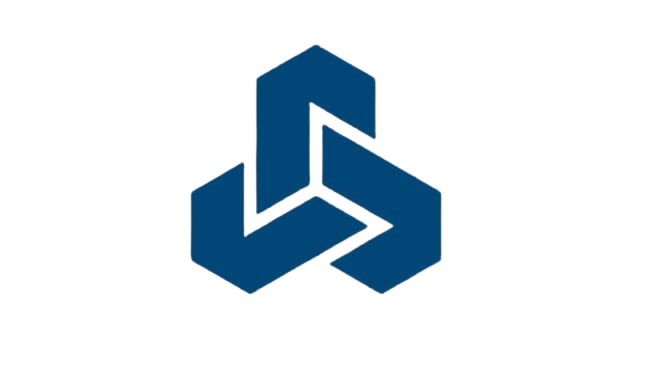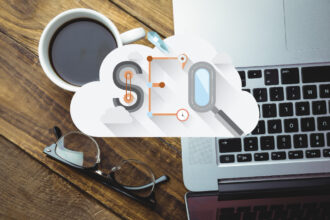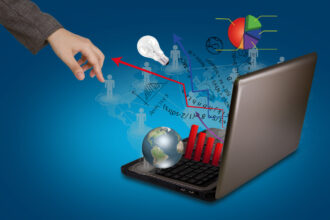In the rapidly evolving landscape of modern business, companies are constantly seeking innovative solutions to streamline operations and enhance workforce management. One of the most significant developments in recent years has been the widespread adoption of human resource (HR) software. Businesses, whether small startups or global enterprises, face increasing pressure to optimize employee performance, maintain compliance, and improve engagement. The integration of advanced HR software into organizational workflows is no longer a luxury but a necessity.
The best HR software solutions offer businesses the tools they need to manage their human capital efficiently. From recruitment and onboarding to payroll and performance management, these systems centralize processes that were once cumbersome and fragmented. By providing a unified platform, HR software reduces administrative burdens and allows HR professionals to focus on strategic initiatives that drive growth and employee satisfaction. Modern organizations increasingly recognize that the right software can be a decisive factor in achieving competitive advantage.
Moreover, as the workforce becomes more diverse and geographically dispersed, companies are looking for HR solutions that can adapt to evolving needs. The best HR software not only simplifies day-to-day HR tasks but also enables companies to leverage data-driven insights to make informed decisions. This technology ensures that every employee interaction, from initial recruitment to ongoing performance evaluations, is efficient, compliant, and aligned with organizational goals. The adoption of robust HR software has, therefore, become a cornerstone of modern business strategy, fostering both operational efficiency and a positive employee experience.
The Evolution of Human Resource Management Tools
Historically, human resource management was a labor-intensive function, reliant on manual record-keeping and paper-based processes. Payroll calculations, employee evaluations, and attendance tracking consumed significant time and resources, leaving HR teams with little capacity for strategic planning. The advent of digital tools gradually transformed this landscape, introducing software solutions that automated repetitive tasks and centralized employee data.
Early HR management systems primarily focused on basic administrative functions, such as storing employee records and generating payroll reports. While these systems reduced the burden of manual paperwork, they often lacked integration and adaptability, limiting their effectiveness for larger, more complex organizations. Over time, the evolution of technology introduced comprehensive solutions that not only automated administrative tasks but also provided analytical capabilities, reporting functions, and performance management tools. The emergence of cloud computing further revolutionized HR software by enabling real-time data access, remote management, and seamless collaboration across departments and locations.
Today, the evolution of HR software reflects a broader trend toward digital transformation in business. Organizations now expect their HR systems to do more than just maintain records—they require tools that support recruitment strategies, workforce planning, learning and development, and employee engagement initiatives. The best HR software embodies this evolution, offering features that integrate seamlessly into the overall business ecosystem. With intuitive interfaces and data-driven insights, modern HR solutions empower companies to manage talent effectively, foster a positive workplace culture, and respond quickly to changing market demands.
Why Companies Seek the Best HR Software Today
In a competitive global market, organizations are under immense pressure to attract and retain top talent. The challenges of managing a dynamic workforce are complex, involving recruitment, retention, compliance, and performance evaluation. Companies seek the best HR software to address these challenges while ensuring efficiency and accuracy in their HR operations. Advanced software solutions not only reduce administrative workload but also provide strategic advantages that influence overall business performance.
The best HR software goes beyond simple task management, offering insights that enable better decision-making. For instance, predictive analytics can identify potential turnover risks, highlight skill gaps, and suggest interventions to improve employee engagement. Organizations that leverage these capabilities gain a significant edge, as they can proactively address workforce challenges rather than reactively managing crises. Furthermore, HR software enhances the employee experience, fostering engagement, satisfaction, and loyalty—factors that directly impact productivity and profitability.
Companies also recognize the value of compliance and security in today’s regulatory environment. Employment laws, tax regulations, and data protection standards are increasingly stringent, and non-compliance can result in significant financial and reputational consequences. The best HR software ensures that companies adhere to these requirements effortlessly, maintaining accurate records, automating reporting, and safeguarding sensitive employee data. By providing a centralized, secure, and intelligent system for HR management, these tools allow organizations to focus on growth and innovation rather than administrative burdens.
Features That Define the Best HR Software Solutions
The effectiveness of HR software largely depends on the features it offers. The best HR software is designed to streamline every aspect of human resource management, from hiring and onboarding to performance management and employee engagement. Modern businesses demand more than just a digital filing system; they need tools that are intelligent, intuitive, and capable of providing actionable insights. By integrating multiple HR functions into a single platform, organizations can ensure that their HR teams operate efficiently while maintaining a holistic view of workforce dynamics.
One of the defining features of top-tier HR software is its ability to automate complex processes. Recruitment, for example, often involves screening hundreds of resumes, scheduling interviews, and tracking candidate progress. With the best HR software, these tasks are managed seamlessly, freeing HR professionals to focus on higher-value activities such as talent development and strategic planning. Additionally, payroll processing, benefits administration, and compliance reporting are handled accurately and promptly, reducing errors and mitigating risk. This level of automation is crucial for companies aiming to maintain a productive and satisfied workforce.
Another critical characteristic of the best HR software is its adaptability. Organizations come in all shapes and sizes, each with unique requirements and workflows. Therefore, software that allows customization, integration with other business systems, and scalable solutions is highly valued. Data analytics and reporting capabilities further enhance decision-making, allowing HR leaders to track trends, measure employee performance, and forecast workforce needs. In an era where data-driven insights guide business strategies, having software that combines operational efficiency with analytical power is no longer optional—it is essential.
Cloud-Based HR Software vs. Traditional Systems
The rise of cloud computing has transformed how businesses approach human resource management. Traditional HR systems often required significant on-premise infrastructure, lengthy installation times, and ongoing IT maintenance. In contrast, cloud-based HR software offers accessibility, flexibility, and scalability that legacy systems cannot match. With cloud solutions, HR teams can access critical information from anywhere, at any time, using any device with an internet connection. This has proven especially valuable for companies with remote or geographically dispersed workforces.
Cloud-based HR software also ensures that updates and improvements are delivered seamlessly. Unlike traditional systems that may require manual upgrades, cloud platforms continuously evolve, integrating new features, security enhancements, and compliance updates automatically. This not only saves time and resources but also ensures that organizations are always leveraging the latest technology in their HR operations. Furthermore, cloud solutions typically offer superior data security, with multiple layers of protection and regular backups that safeguard sensitive employee information.
While traditional systems still exist in some industries, the shift toward cloud-based HR software is undeniable. Companies are increasingly prioritizing agility and efficiency, and cloud solutions enable them to adapt quickly to changing workforce demands. The ability to scale operations, incorporate advanced analytics, and maintain secure and compliant processes makes cloud-based HR software a preferred choice for businesses seeking long-term growth and resilience.
The Role of Artificial Intelligence in HR Software

Artificial intelligence (AI) has emerged as a transformative force in human resource management, reshaping how companies recruit, retain, and develop talent. The best HR software leverages AI to deliver predictive analytics, automate decision-making, and enhance the overall employee experience. By analyzing vast amounts of data, AI-driven HR systems can identify patterns, forecast workforce trends, and provide actionable insights that were previously difficult or impossible to obtain.
Recruitment is one area where AI has made a profound impact. Advanced algorithms can assess candidate qualifications, predict cultural fit, and even prioritize candidates likely to succeed in specific roles. This reduces bias, accelerates hiring timelines, and ensures that HR teams focus their efforts on the most promising candidates. Similarly, AI enhances employee engagement by analyzing performance data, monitoring satisfaction indicators, and recommending interventions to improve retention. Companies that incorporate AI into their HR processes gain a competitive advantage by making smarter, faster, and more informed workforce decisions.
Beyond analytics, AI also facilitates personalized employee experiences. Learning and development platforms powered by AI can recommend training programs tailored to individual skill gaps, career aspirations, and performance metrics. Chatbots and virtual assistants provide instant support for HR-related inquiries, improving responsiveness and accessibility. By integrating AI, the best HR software transforms traditional human resource functions into strategic, proactive, and highly personalized solutions that benefit both the organization and its employees.
How the Best HR Software Enhances Employee Experience
Employee experience has become a central focus for modern organizations, recognizing that engaged and satisfied employees drive productivity, innovation, and loyalty. The best HR software plays a crucial role in shaping this experience by simplifying interactions with HR processes and providing tools that empower employees to manage their careers. From self-service portals to real-time feedback systems, these platforms ensure that employees feel valued, informed, and supported.
Self-service features are particularly impactful, giving employees the ability to update personal information, access pay stubs, request leave, and track performance metrics without relying on HR staff. This autonomy not only saves time but also fosters a sense of control and ownership over one’s professional journey. Additionally, performance management tools integrated into HR software allow for continuous feedback, goal tracking, and recognition programs that reinforce employee engagement and development.
Moreover, the best HR software contributes to a positive workplace culture by enabling transparent communication, streamlining collaboration, and providing analytics that inform organizational decisions. By understanding employee satisfaction trends and addressing concerns proactively, HR teams can create a supportive environment that encourages productivity and retention. In essence, investing in high-quality HR software is not just about operational efficiency—it is a strategic move to enhance employee experience and cultivate a motivated, high-performing workforce.













